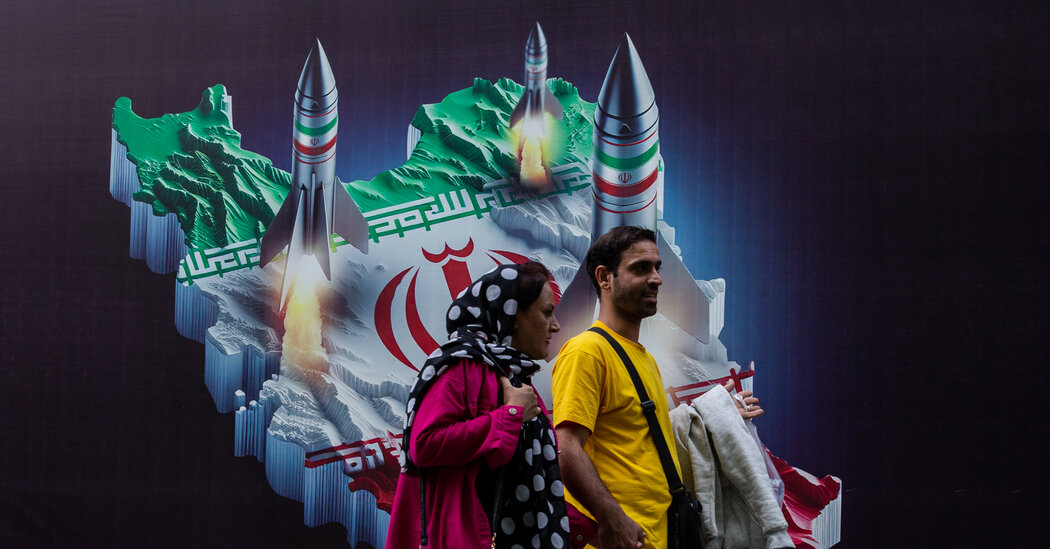
[ad_1]
Israel struck Iran early on Friday, according to officials from both countries, in what appeared to be its first military response to the Iranian attack on Israel last weekend.
The strike was the latest in a cycle of retaliation between the two foes that has alarmed world leaders, who fear that back-and-forth attacks could erupt into a broader war.
Here is a look at what we know about the strike and its implications.
What did Israel strike?
Iranian officials said on Friday that an Israeli strike hit a military air base near Isfahan, a city in central Iran. The scale and method of the attack were unclear.
Iranian officials said a separate Israeli attack was thwarted in Tabriz, a region roughly 500 miles north of Isfahan. Iranian news agencies said explosions were heard near both cities.
The state media in Syria, a major Iranian ally that borders Israel, said also that Israeli missiles had hit air-defense positions in southern Syria on Friday.
The Israeli military declined to comment.
Why did Israel strike?
Israel attacked Iran in retaliation for a large Iranian attack on Israeli territory last weekend that included more than 300 missiles and drones.
That attack frightened Israelis but caused little damage and few injuries because nearly all of Iran’s weapons were intercepted by Israel and its allies, including the United States, Britain and Jordan.
That Iranian attack was launched in response to an Israeli strike on an Iranian diplomatic compound in Syria on April 1, which killed seven Iranian officials. Israeli officials did not warn the United States of the Damascus strike and some have since privately conceded that it was a serious miscalculation.
Will Iran retaliate?
It was not clear whether or not Iran would retaliate, but initial reaction in Israel and Iran, where some officials and state-backed media sought to downplay the strike’s severity, suggested that its response may be muted.
Iranian state TV broadcast footage of Isfahan looking peaceful, and reported that military and nuclear facilities there were undamaged. One newsreader told viewers the strike was “not a big deal.”
Officials in Israel said the strike had been designed to avoid escalating tensions. But some celebrated. The national security minister, Itamar Ben-Gvir, used on social media a Hebrew phrase in apparent reference to Iran that roughly translates to “weak” or “pathetic.”
Why is Isfahan important?
Isfahan is one of Iran’s most famous and historic cities, known for its beautiful turquoise and purple tiled mosques, picturesque arched bridges and Grand Bazaar.
The area is also home to four small nuclear research facilities and is a center of Iranian weapons production. Many of the country’s Shahab medium-range missiles — which can reach Israel and beyond — are assembled there.
The province of Isfahan also contains the Natanz uranium enrichment site, as well as an air base that is home to a fleet of American-made F-14 Tomcats. They were purchased by the U.S.-backed Iranian government before the 1979 Islamic revolution, according to The Associated Press.
Why are world leaders so worried about a war between Iran and Israel?
For the past week, President Biden and other world leaders have urged Israel not to respond to last weekend’s Iranian missile attack. They have said they fear that an Israeli response could escalate into an all-out war.
World leaders advised Israel that it should view the interception of nearly all of the Iranian missiles and drones as a strategic victory. That is especially so, they have said, because it was achieved by an international coalition including Arab countries, which have historically not been inclined to come to Israel’s defense.
Israel has also been fighting allies of Iran on two other fronts — Hamas in Gaza and Hezbollah in Lebanon — for the last six months. Israel’s conduct of the war in Gaza, where more than 33,000 people have been killed and famine has begun to set in, has left it increasingly isolated diplomatically.
[ad_2]
Source link






